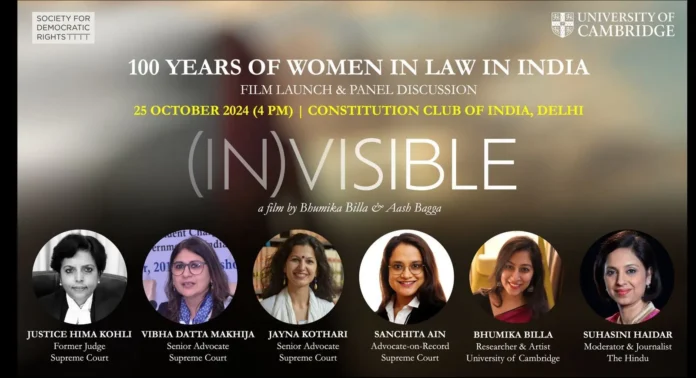Former Supreme Court judge, Justice Hima Kohli, has advocated for policy changes, apart from creating a conducive working environment, for women to succeed in the Indian judiciary.
Speaking during an event organised by the Society for Democratic Rights to commemorate 100 years of women in the legal profession, Justice Kohli on Friday stressed on the need to introduce policies to maintain work-life balance, such as flexible working hours, parental leaves, promoting work from home and simplifying processes, so that women could excel both in their personal and professional lives.
She said the future of women in law in India hinged on the collective effort to dismantle systemic barriers and promote an environment that fostered equality.
These initiatives, aimed at mentorship, skill development and creating inclusive workplaces, were essential to ensure that women not only entered the legal profession, but they shone their light from within it.
Quoting Sheryl Sandberg, an American technology executive, philanthropist and writer, she said that women were needed at all levels, including the top, to change the dynamic, reshape the conversation, and to make sure that women’s voices were heard and heeded, not overlooked and ignored.
The former Supreme Court judge stressed on increasing awareness about gender bias and discrimination, stating that it would help foster a more inclusive culture within the legal fraternity
and legal institutions.
She said gender bias could be explicit when there was discrimination in the hiring and promotion pattern of women lawyers, under-representation of women in the field of prosecution, of senior law officers and judges. Implicit bias could be gauged from slack enforcement of the existing Laws, rules and regulations that have been designed to prevent such bias, noted Justice Kohli, adding that deep-rooted or preconceived notions were also a facet of implicit bias.
It was important to identify gender bias as an impediment to equality and progress, she said.
Learning from the experience of countries that have successfully navigated gender discrimination and implemented gender equality measures, India could provide valuable insights to other nations on the same
trajectory. Non-marginalisation of women centric issues within the legal
community was the first step to negotiate gender bias, noted the former Supreme Court judge.
Speaking about the representation of women in the higher judiciary, she said not much has improved. Quoting a 2021 study, Justice Kohli said out of the 650 High Court judges in India today, only 76 (11.7 percent) were women.
The position was better at the level of the District Judiciary where in some
States, women judicial officers accounted for almost 50 percent of the strength. In the past 75 years, no woman lawyer has been appointed as the Attorney General for India nor has a women lawyer held the post of Solicitor General of India. Though the number of women holding the post of ASG’s in the Supreme Court has increased marginally, women ASG’s representing the Union Government in State High Courts were few and far in between, added Justice Kohli.


